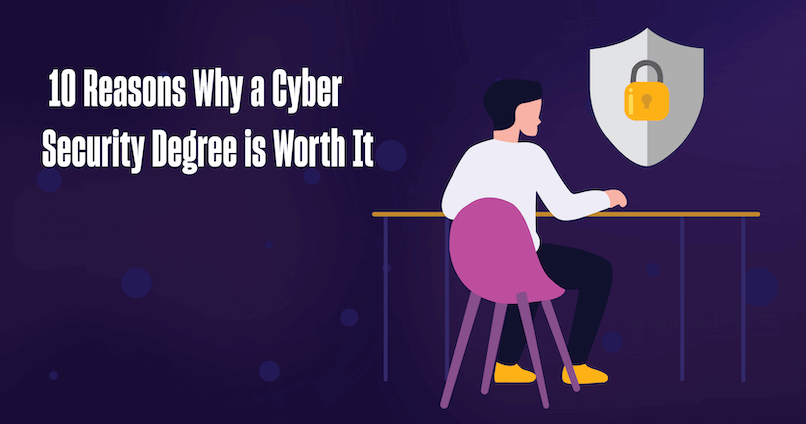If you are considering entering the field of cyber security or looking to advance within the field, a cyber security graduate degree can be a great investment. However, before you invest your time and money in a degree there are a few questions you should ask to ensure you choose the degree program that is right for you.
- How is the degree structured and what courses are included?
If you are investing in an advanced cyber security degree, it is important to understand what you are going to get out of the degree. A degree that offers a mix of policy and operations, with a hands-on, applied approach will give you the tools you need to be successful upon graduation. Many degree programs, however, are purely policy based and leave out the critical hands-on learning component. This can pose a serious disadvantage to students, as many employers say they won’t even hire someone who doesn’t have applied experience.
Similarly, understanding not only how the curriculum is structured but what classes make up the curriculum is critical. Many degree programs today market themselves as cyber security degrees and then offer only a few classes in the actual discipline. And because the field is constantly evolving it is important to look at the relevancy of the curriculum. You want a program that is going to prepare you with the modern skills and tools you can use to fight cyber crime today and in the future.
- Who developed the program and who will be teaching the classes?
In the dynamic and ever-changing field of cyber security, learning from practitioners who are currently working in the field can make all the difference. It can also be helpful to research how the program was developed and who was responsible for its development. For example, at the University of San Diego, the Master of Science in Cyber Security Operations and Leadership degree was developed in conjunction with government and industry leaders who all had input on what was important and relevant for cyber security professionals today.
[FREE GUIDE] Eight Important Considerations for Getting a Cybersecurity Degree
- Does the program offer support with internships and career placement?
Overlooked by many, the career center at your university can be an invaluable resource when it comes to landing an internship or job upon graduation or while you work toward your degree. Universities often have partnerships or affiliations with corporations and industry groups. The best way to determine the strength of a university’s career services is to simply talk to them. Ask them what businesses in the cyber security field they have affiliations with and where they have placed past graduates.
- What is the overall reputation of the school?
It might go without saying that it can help your chances of success upon graduation to attend a school with a good reputation. But it is even more advantageous to hols a degree from a school with a strong reputation in your area of study. Research the companies you would like to work at upon graduation and then contact them. Ask them what they think about certain schools to find out what reputation each university has within the industry. Read online reviews, look at university rankings, find job placement rates and research the faculty within each program to determine the reputation of both the program and the institution.
See What a Cyber Security Masters Program Looks Like for Working Professionals
- What is the job placement rate upon graduation?
Even if you already have a job in cyber security and you are looking to pursue a master’s degree to simply improve your skillset, knowing the placement rate can help you determine the reputation of the program. And if you will be looking for a new job upon graduation, this stat will give you a great idea as to how likely you are to get one.
[FREE GUIDE] Eight Important Considerations for Getting a Cybersecurity Degree
- Do your career goals align with what is being taught in the program?
There are many paths to choose from within the cyber security field. Make sure that you choose a degree that aligns with your interests and aspirations.
- What is the program format and does it work with your lifestyle?
In order to accommodate working professionals, some universities now offer online cyber security graduate degrees or hybrid degrees. These alternative formats can be great options if you are looking to balance your education with a career and other life demands such as family or travel. However, if you choose an online or hybrid degree format, make sure the program you choose offers the hands-on, applied learning component that is so critical in the cyber security field.
- What is unique about the degree?
When evaluating degree programs, ask yourself what each program can offer that will make you stand out from the crowd when applying for jobs. Does one degree prepare you to specialize in a certain skill that another does not? Does one program offer exposure to a broader array of tools, frameworks, models or strategies? A graduate degree is a significant investment in your future, and you want to make sure that investment is going to pay off.
[RELATED] Which Cyber Security Program is Right For You? Download our free infographic to help decide >>
If you are interested in learning more about the 100% online cyber security graduate degree at the University of San Diego, contact us! We accept students on a rolling basis in the fall, spring and summer for admission into our Master of Science in Cyber Security and Operations and Leadership degree program.




